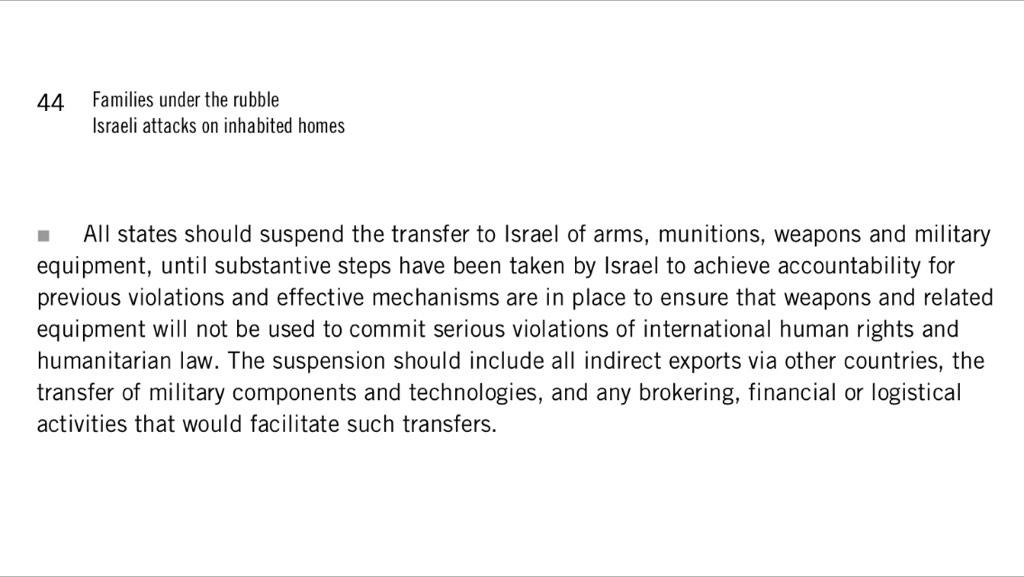In the article we are presented with an argument from an Israeli military spokesman who says Amnesty "ignores documented war crimes perpetrated by Hamas." This is echoed by Israel’s embassy in London ("ignoring the nature of the enemy") and the Israeli foreign ministry ("Hamas is not mentioned, as if the group has no responsibility for the bloodshed"). But a quick look at the link (in paragraph 2) disproves this.
Thus in the introduction on page 5 of Amnesty's report finds:
Hamas and other Palestinian armed groups fired thousands of indiscriminate rockets and mortar rounds into civilian areas of Israel, killing six civilians, including one child. Dozens of other Israelis, including at least six children, were directly
injured by rockets or shrapnel. A total of 66 soldiers were killed in the fighting.
Amnesty International has documented and is continuing to document serious
violations of international humanitarian law, including unlawful killings and injuries to civilians and destruction of civilian property, both by Israel and by Hamas and Palestinian armed groups.
The biggest omission however is further on. Although Rudoren claims to provide a summary of "virtually all of its 49 pages" the sole citation of Amnesty that merits more than a two word snippet is where the group:
calls for both Israel and the Palestinians to join the International Criminal Court so it can prosecute cases from this summer, and urges Israel to participate in an inquiry by the United Nations Human Rights Council that it has so far boycotted out of concern for predetermined bias.This is accurate. But frustratingly, these are only two of the three. On page 43 there is a recommendation "to other states" (such as the one where Rudoren's newspaper is based). In this section, Amnesty International is arguing as publicly as possible that Israeli war crimes could be mitigated by withdrawal of military support:

Putting all this together, Rudoren's article warps the picture both of our military support and the record in general. There is no explanation for quoting three sources unless you are trying to give a representation of consensus. But this party line exists solely in the government, and their strategy of working the human rights organizations with accusations of bias. Ironically, as the report goes on to say on page 41, "Amnesty International agrees with the conclusion of the Israeli human rights organization B’Tselem that “there is currently no official body in Israel capable of conducting independent investigations of suspected violations of international humanitarian law”" The New York Times editors, reporters and especially readers should ask themselves why it's acceptable to crowd out US culpability and an Israeli human rights source.
No comments:
Post a Comment